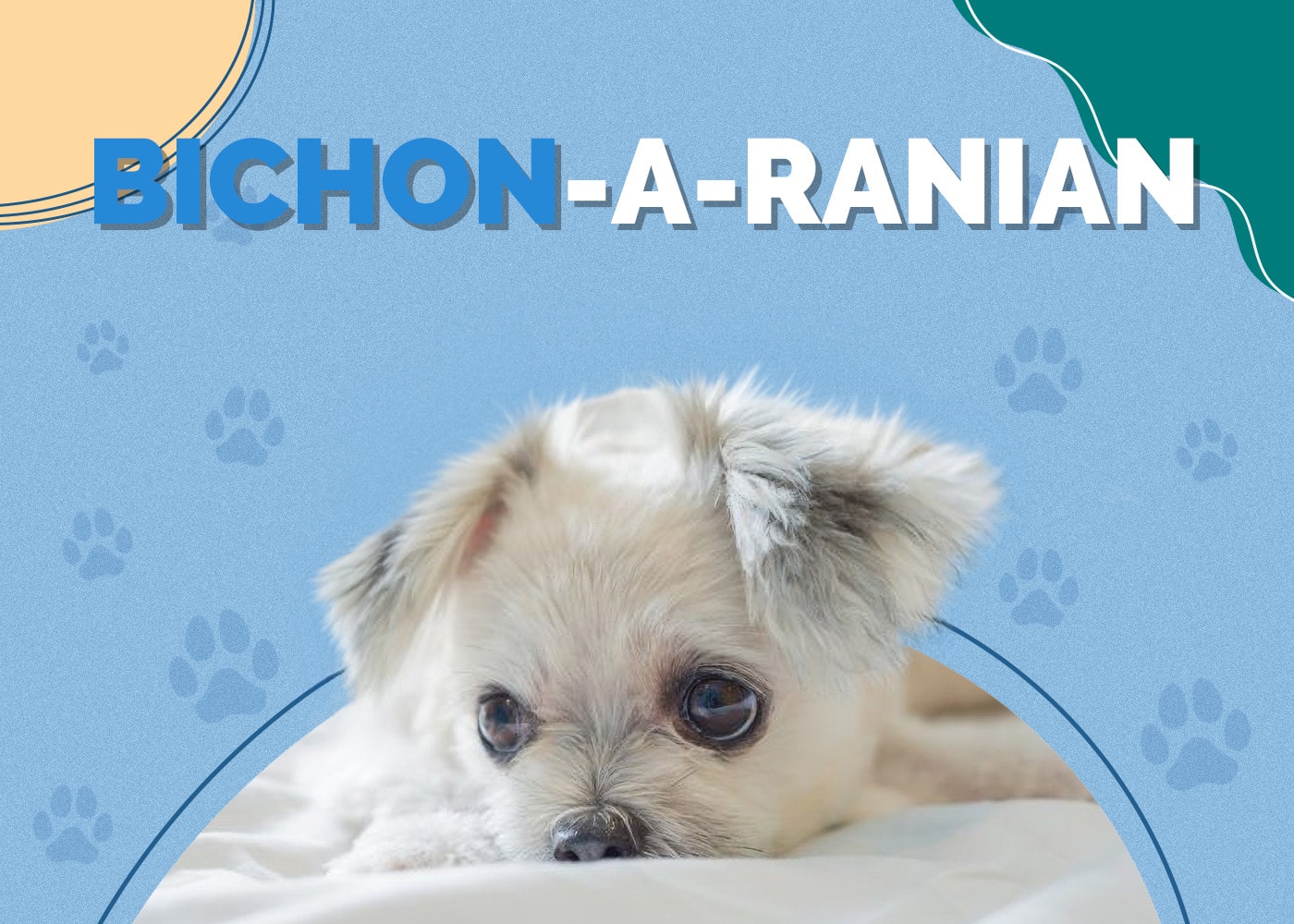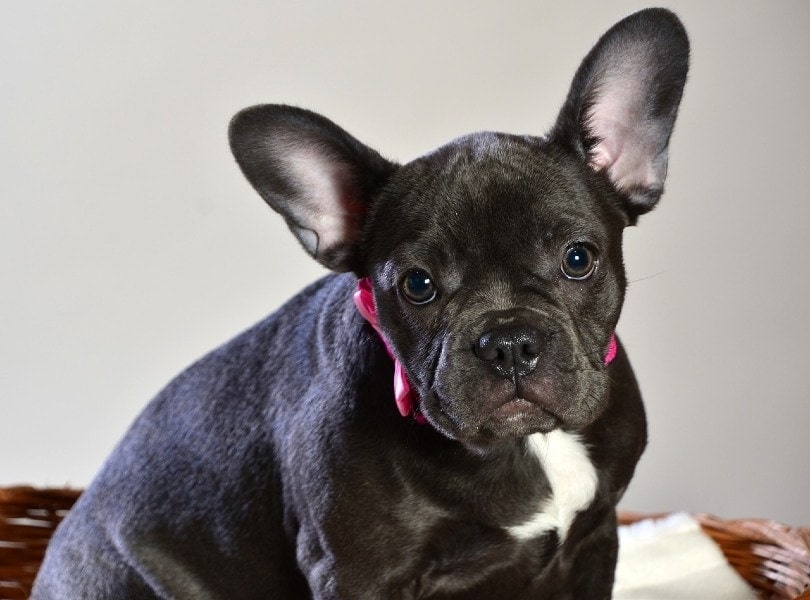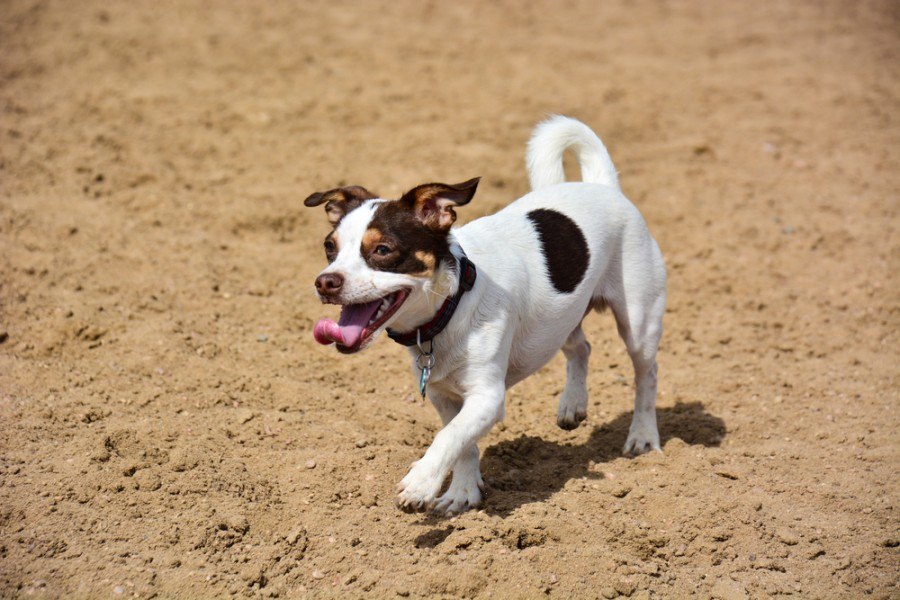German Shepherd Dog Breed Info: Pictures, Puppies, Traits & Facts

Updated on
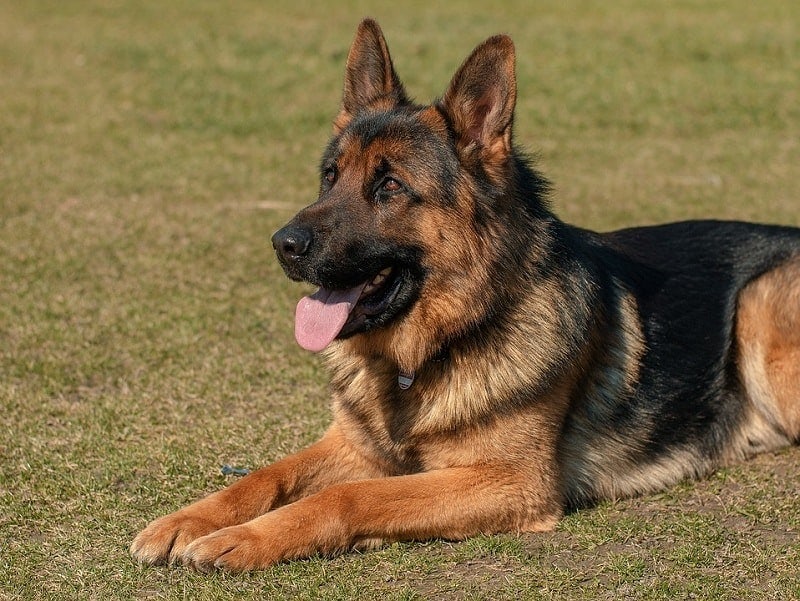
| Height: | 22 to 24 inches (female), 24 to 26 inches (male) |
| Weight: | 50 to 70 pounds (female), 65 to 90 pounds (male) |
| Lifespan: | 7 to 10 years |
| Colors: | Black and tan, black and red, black and cream, blue, liver and tan, gray, black, white |
| Suitable for: | Active families, families with children, those with space for a large dog |
| Temperament: | Intelligent, brave, confident, versatile, energetic |
The German Shepherd, also known as the Alsatian, Alsatian Wolf Dog, or GSD (German Shepherd Dog), might seem to be a dog who needs no introduction. After all, they are the second most popular dog breed in the U.S. according to the American Kennel Club, behind only the Labrador Retriever.
But with that popularity comes a lot of popular opinions about the German Shepherd. They’ve been a perennial favorite breed for so long that they seem to be all things to all people. Some see them as merciless guard dogs, some as cuddly family pets. One dog lover might see them as a willful breed that tugs on the leash hard enough to walk their owners, while another considers them the world’s smartest, most trainable working dogs.
What’s the truth that lurks behind those iconic black-and-tan faces, with their kind eyes and wolf-like grins? That’s what we’re talking about in this post. Think of us as your K-9 detectives, cutting through the noise around this beloved breed to tell you what it’s really like to live with one.
So, settle in as we tell you about the hard-working breed that’s traveled from the pasture to the police academy — the German Shepherd.
German Shepherd Puppies
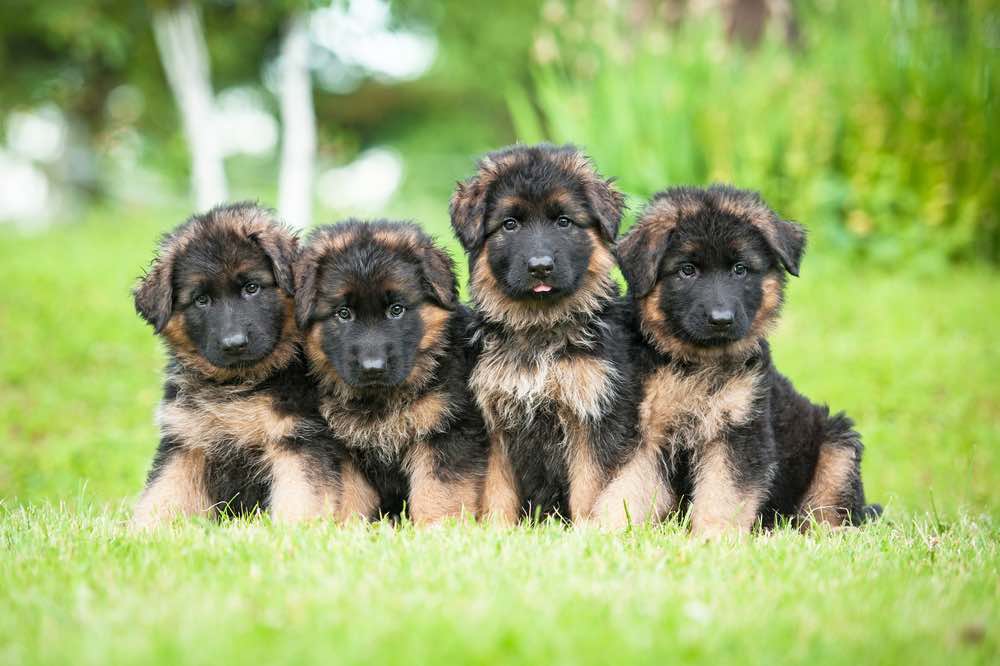
There’s a lot of confusion around German Shepherds’ famously pointy ears. Some people looking for a pedigree GSD think they’re being conned when they meet a puppy with floppy ears, assuming the breeder is trying to pass off a mutt as a purebred.
Others get angry for the exact opposite reason, believing that the Shepherd’s pointy ears result from the same unethical surgical procedures sometimes done to Doberman Pinschers. “Cropping” is a way to make naturally floppy ears stand up but inflicts unnecessary pain and suffering on the dog.
Neither of these are true. All German Shepherds are born with floppy ears. As the puppies get bigger, their ears begin to stand up straight — as early as 6 weeks for some and as late as 14 weeks for others. So, if you’re worried your Shepherd is unhealthy because its ears haven’t stood up yet, there’s nothing to fear — just give it time!
3 Little-Known Facts About the German Shepherd
1. German Shepherds served in the World Wars — on both sides
The German Shepherd was first bred in 1889 by Max von Stephanitz, who discovered a dog that looked almost exactly like the modern breed. At first, he sold them as herding dogs. As Germans increasingly left their pastures for the city, German Shepherds updated their resumes, staying relevant as police dogs, mail carriers, and guard dogs.
When World War I broke out, German Shepherds joined the German army. Soldiers from Britain, France, the United States, and other Allied Powers saw dogs fighting amid the trenches on the German side that were carrying messages, distributing food, bringing medical supplies, and guarding key points.
By the time of World War II, both armies had their own German Shepherds. However, with anti-German sentiment running high in the English-speaking world, the pups were often sold as Alsatian Wolf Dogs, a name that stuck around until the 1970s.
2. A German Shepherd might have been the first Oscar winner
Right after the armistice ended World War I, American soldiers began rescuing German Shepherds who had been abandoned on the battlefield. One of these rescues was named Rinty. After being brought to the United States, Rinty began starring in silent movies under his better-known stage name, Rin-Tin-Tin.
Rin-Tin-Tin played heroic dogs who found themselves at the center of dramatic plots, often set on the battlefields of Europe or the American frontier. His movies were the superhero blockbusters of their day. Every time Warner Bros needed to make up a budget shortfall, Rin-Tin-Tin was their license to print money.
A persistent but unproven rumor states that Rin-Tin-Tin was supposed to receive the first-ever Academy Award for Best Actor, but lost out at the last second due to pro-human prejudice on the nominating panel. While Rinty died in 1934, a succession of German Shepherds have carried on his legacy. Today, the 14th dog to bear the Rin-Tin-Tin title still makes public appearances.
3. A German Shepherd introduced seeing-eye dogs to the United States
In 1927, a blind American named Morris Frank learned about a school in Switzerland that was training dogs to act as aides for disabled war veterans. Frank traveled to Switzerland to meet dog trainer Dorothy Eustis and returned with a German Shepherd named Buddy. To prove Buddy’s seeing-eye abilities, he crossed dangerous, high-traffic streets in New York City while reporters watched.
Eustis and Frank went on to found America’s first school for seeing-eye dogs. They campaigned tirelessly for the right to bring service dogs into public spaces, establishing laws in every state in the country by 1956.
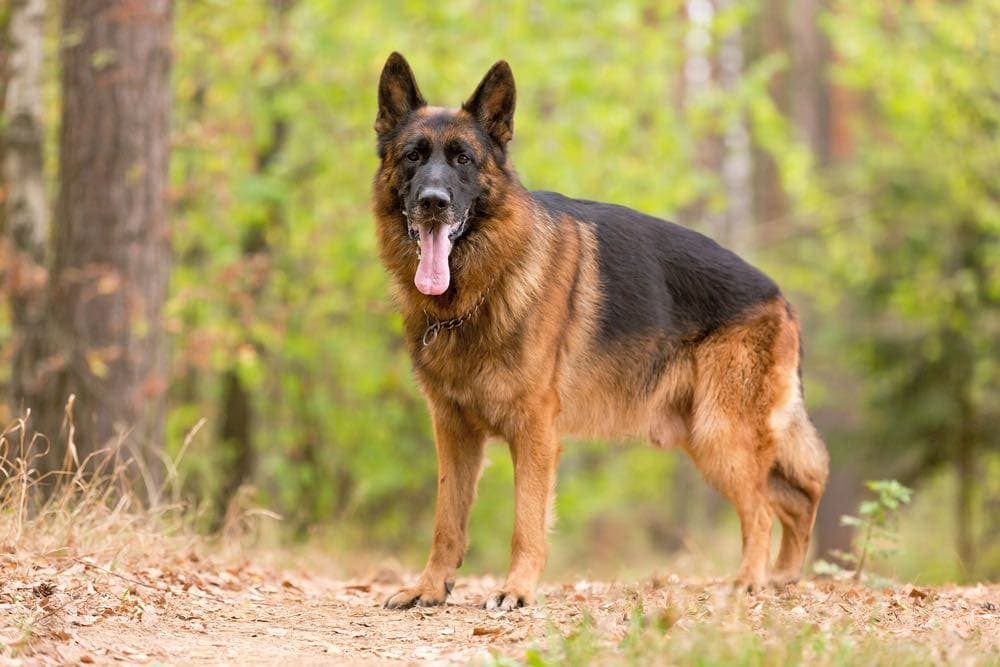
Temperament & Intelligence of the German Shepherd🧠
The AKC breed standard for the German Shepherd has one of the best sentences we’ve ever seen written about a dog. Shepherds, it declares, possess a “certain aloofness that does not lend itself to immediate and indiscriminate friendships.” We think that perfectly conveys this breed’s unique combination of pride, intelligence, loyalty, and dedication to its job — whatever that might be.
Yes, it’s true that German Shepherds are slower to trust than many other dogs. However, their aloofness is not the same as that of a pampered lapdog. Some dogs withhold affection because they’re extremely proud and don’t feel like they’ve been getting the proper amount of respect. If a German Shepherd doesn’t like you right away, it’s either being careful or has something more important to do.
If you put in the work to prove to your German Shepherd that you aren’t a threat or obstacle, you’ll quickly discover that it’s much more than a stoic, mission-driven guard dog. Shepherds can exhibit the whole range of dog behaviors: cuddly, goofy, mischievous, hyper, lazy, whiny, excited, and all the rest. They’re just cautious about how and when they reveal that side of themselves.
Assuming they’ve gotten the proper training, German Shepherds exhibit reasonable, even-keeled behavior. They don’t start fights, they can be trained not to chase children or cats, and while they definitely bark, they always obey the command to stop.
The German Shepherd’s intelligence is remarkable. They’re at the head of the pack in terms of obedient intelligence, which measures a dog’s ability to learn commands and obey them. Shepherds need to hear a command as few as five times before they’re able to follow it to near completion. They also have highly developed critical thinking skills, demonstrating the ability to solve problems without orders or directions from a human.
Combined, these two types of intelligence prepare any GSD to excel at just about every job a dog can hold. They’re classified as herders but are just as good at tracking, search and rescue, bomb-sniffing, emotional support, seeing-eye work, and more. Morris Frank’s crossing of Broadway proved that you’re never safer than when you’ve trusted your life to a German Shepherd.
Are These Dogs Good for Families?🏡
The German Shepherd’s extreme popularity stems partly from their image as noble K-9 cops, but even more from their status as a nearly ideal family pet. Everything we’ve talked about so far makes the GSD a loving, caring addition to any family unit. They play nice with children, patrol the perimeter of your house for evildoers, and are cautious yet friendly with new visitors.
The best thing about German Shepherds as a family dog is that once trained, they’re good at adapting to new situations and changes in their routine. They’re less likely than other breeds to panic if their toys get moved, or if their favorite family member goes on vacation. They sometimes suffer from separation anxiety, but that habit can be trained out of them with consistent positive reinforcement.
German Shepherds can be amazing with children, no matter how small. Once it accepts your kids as part of its pack, your Shepherd will dive into traffic or a raging river to save them. They’re an ideal combination of loyal guardian and adorable nanny. You haven’t lived until you’ve seen a 3-year-old human using a full-grown German Shepherd as a pillow.
Life with a German Shepherd is not without its challenges, though. Don’t expect it to fit perfectly into your family dynamic right away. If not properly socialized, many of its best traits can turn into sour reflections of themselves. Pride becomes stubbornness, alertness becomes jumpiness, and calm reserve turns into shy unease. This is especially true if they are routinely left outside for hours. German Shepherds are not yard dogs — they need some affection and love every day.
The good news is that with some work, it’s easy to avoid those bad outcomes. A German Shepherd is a natural leader, so if it doesn’t respect you as the head of its pack, it will have no qualms about filling the vacancy. In order to command the respect of a Shepherd, you’ll need to be assertive without being aggressive, confident without being dominant, and caring without being coddling.
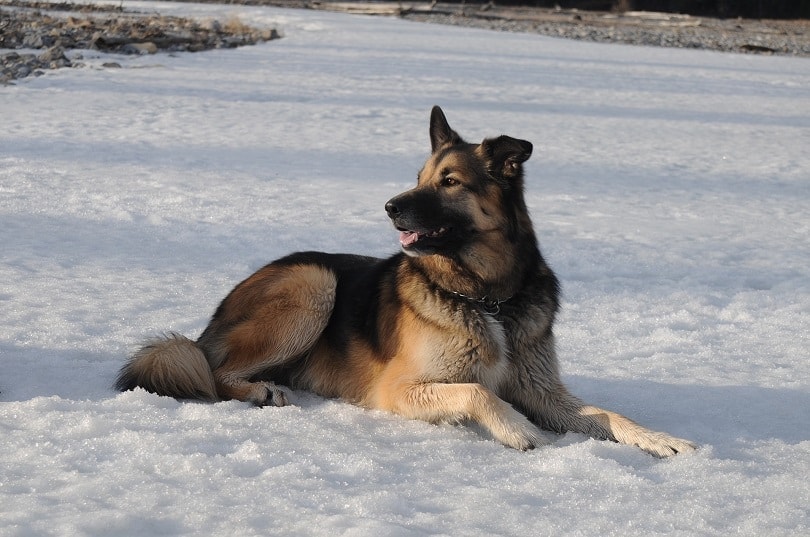
Does This Breed Get Along With Other Pets?🐶 😽
For many of the same reasons they make great family dogs, German Shepherds can also fit neatly into households that already contain other pets. It’s not quite as clear-cut a question as it is with human children, however. While a GSD would never chase a human (outside of extreme circumstances), they have a harder time suppressing their hunting instinct when a smaller dog, cat, or bird is running or flying circles around them.
The key to a peaceful relationship between your German Shepherd and your other pets is to introduce them to each other at a very young age. Dogs have far better relationships with other animals when they meet them as puppies, and GSDs are no exception.
Training also plays a major role. A well-trained German Shepherd’s highest instinct is to do its job well and please its favorite humans. Even if it really, desperately wants to chase the cat, when its master says no, it will put a lid on that desire every time.
One other thing to note: some Shepherd owners have reported that males can get aggressive around other dogs of the same sex, especially other German Shepherds, but this is just anecdotal. If your male GSD does growl at other males, getting them fixed (which you should do anyway) can cut down on the problem.
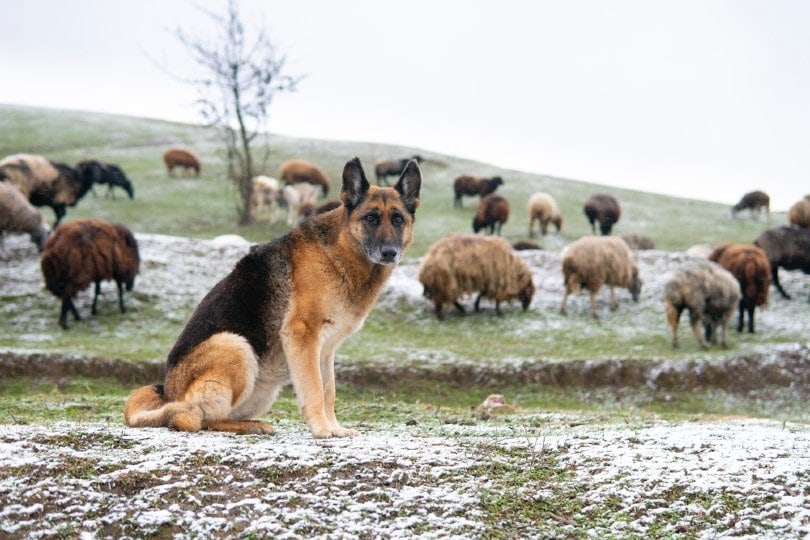
Things to Know When Owning a German Shepherd:
Food & Diet Requirements🦴
Because they grow so quickly and top out at such a wide range of heights and weights, it’s hard to give a single diet recommendation that will work for all German Shepherds. The best way to figure out what to feed your German Shepherd is to experiment by feeding them different amounts and watching them closely during mealtimes and throughout the day.
Start with the following basic guidelines for dry food each day:
- Puppy, 10 to 30 pounds: 2 cups per day
- Puppy, 30 to 50 pounds: 3 cups per day
- Adult, 50 to 70 pounds: 4 cups per day
- Adult, 70 to 90 pounds: 5 cups per day
If your dog seems sluggish, nervous, or unhappy with this amount of food, they might not be getting enough. Add 1/4 cup per day until they seem content again. If they suffer from stomach pains or start visibly gaining weight, reduce their portions by 1/4 cup each day until they go back to normal.
Beware of the possibility of bloat. Bloat, or gastric torsion, occurs when a deep-chested dog eats too quickly, causing gas to rapidly expand and twist their stomach in knots. It’s a sudden, frightening, and potentially fatal malady. To avoid it, invest in a slow feeder. This doesn’t have to be fancy or expensive; it can be as simple as a reservoir that only lets a bit of food out at a time.
To choose a food, start by considering your dog’s age. German Shepherds need different nutrients as puppies than they do as adults, just how they need different nutrients as seniors. Choose a dog food formula built specifically for your GSD’s age group.
Next, read the ingredients label. You’re looking for a dog food high in protein, fiber, and fat, and low in carbohydrates and unnecessary bulking ingredients. The first five ingredients should be real meat and/or vegetable matter. Dogs aren’t obligate carnivores like cats are, but they don’t like living on vegetarian diets unless it’s absolutely necessary. Avoid by-products and gluten meal, and try to give your GSD what its wolf ancestors might have eaten in the wild.
Give your Shepherd a raw, chewy bone to gnaw on every now and then. It’s OK to feed it table scraps sometimes, but human food shouldn’t make up more than 10% of its diet. Also, never feed a dog cooked bones, as they can splinter and damage their digestive tracts.
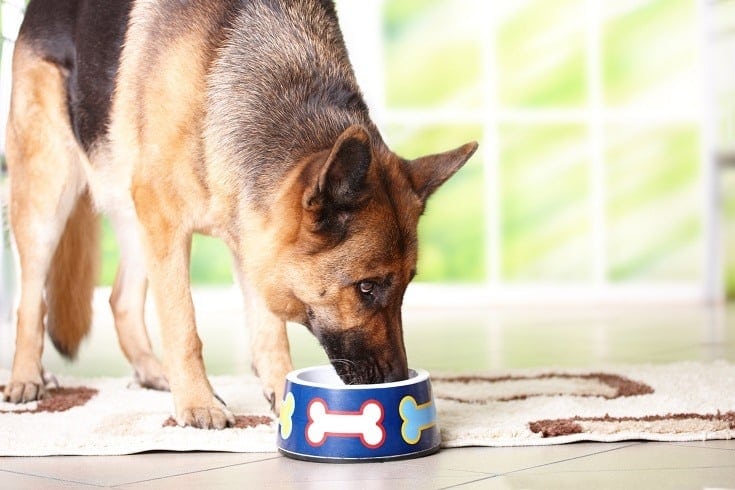
Exercise🐕
All German Shepherds are energetic dogs who need frequent exercise to stay happy. As a working breed, they’re used to managing flocks of sheep, tracking down danger, and dashing across battlefields — that doesn’t translate well to a couch-potato lifestyle.
That being said, if you get your Shepherd as a puppy, introduce exercise into its life gradually. Until they’re at least 18 months old, never force them to run or jump, as this can hurt their developing bone structures. Instead, take them on slow walks, and hold gentle play sessions in your home or backyard.
When they’ve reached adulthood, German Shepherds love to go on jogs, bike rides, and hikes with their owners. They’re especially fond of any kind of exercise where they can solve a problem, figure out a mystery, or learn a new command. They respond well to obedience school, agility training, and interactive toys, though they might not always be up for playing with other pooches at the dog park.
As a rough guideline, expect to spend about an hour every day exercising a full-grown German Shepherd.
Training🦮
The first 6 months of a German Shepherd’s life are the critical period for turning it into a mentally healthy adult. During this time, your Shepherd puppy is relying on you to be its pack leader. This doesn’t mean macho “alpha” posturing, which does nothing but make your dog nervous and secretive.
Instead, the key is consistency. Show your German Shepherd puppy that every action it takes has a constant, predictable consequence. For example, if it starts barking whenever you play together, immediately take the toy away. Since German Shepherds are so smart, this only needs to happen a few times before the puppy learns that barking means playtime is over. This kind of negative reinforcement works far better than shouting at them.
Positive rewards can include treats, favorite toys, pats, and words of praise and encouragement. Make sure to reward your GSD when it does something right. Experts recommend that you should do something nice for your German Shepherd whenever it comes to you.
Obedience classes with multiple puppies, starting as young as 2 months, will teach your Shepherd early on that other small creatures are friends, not food. Once it graduates, consider taking it back for more advanced training classes, which is a great way for them to get both physical and mental exercise.
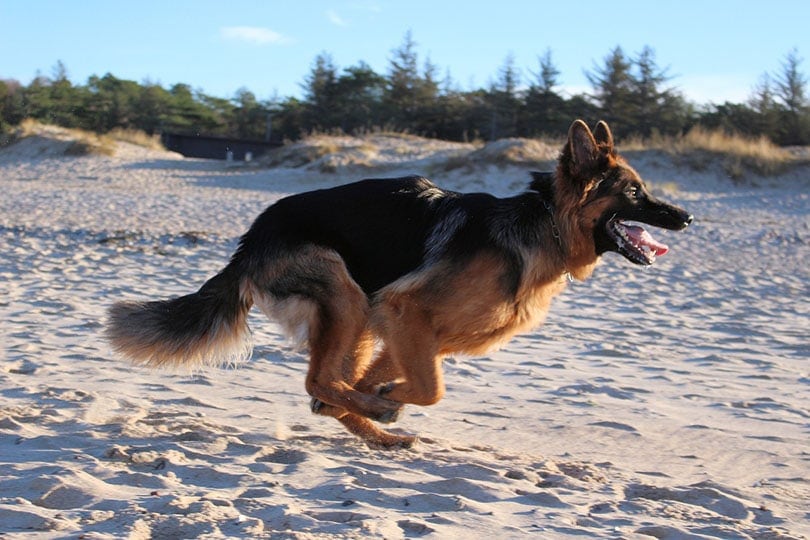
German Shepherds Are Often Considered “One-Man” Dogs
One of the most persistent myths about German Shepherds is that they are only able to love one human, regarding all others with suspicion. This is a harmful inaccuracy. While Shepherds do tend to pick one favorite person, they’re perfectly capable of regarding other people as members of their “pack” who are not to be harmed or growled at.
Training is a key factor in a German Shepherd’s ability to be a loving member of a family or large group. A German Shepherd’s bond can also change over time. This is frequently seen in police and rescue dogs, who might have different handlers across a long career.
Grooming ✂️
German Shepherds have a double coat. The outer layer of their fur is coarse and wiry, while the interior undercoat is softer. This type of coat is generally low-maintenance except during heavy shedding seasons in the spring and fall. Believe us when we say you’ll know when shedding season starts, especially if you have any white carpets or furniture. Unfortunately, German Shepherds are not hypoallergenic in the least.
While not actively shedding, your German Shepherd can get by with a weekly brushing. While shedding, they need to be brushed every day in order to keep the hair from piling up. Every time you brush your GSD, swab their ears with a damp cotton ball to prevent irritation, then check the nails to see if they need to be clipped. German Shepherds aren’t always great at grinding down their own nails.
Baths are rarely required — just give your German Shepherd a quick rubdown if they start to smell.
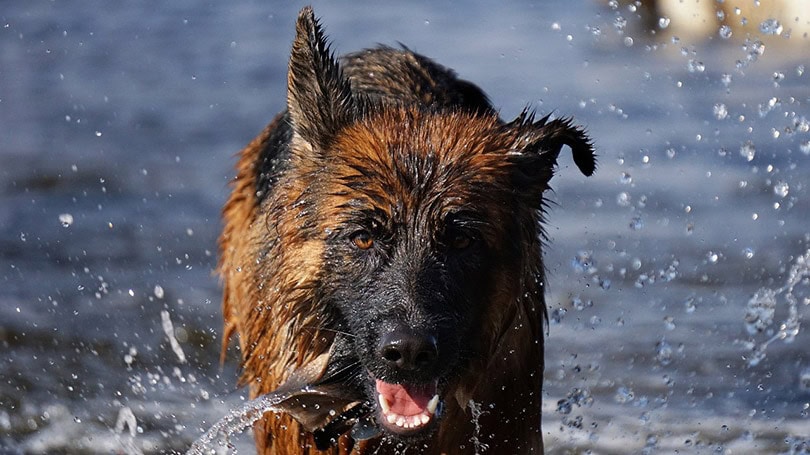
Health and Conditions❤️
Given their robust strength, German Shepherds are generally seen as being a healthy breed. In truth, though, pedigree breeding has led to the prevalence of several health conditions in the GSD gene pool and ultimately leads purebreds to have a shorter lifespan than some other dogs.
All German Shepherd owners should know how to recognize the following conditions, especially if their Shepherd is a purebred. German Shepherd mixes are usually healthier due to hybrid vigor, but can still suffer from any of the below:
Bloat: A potentially fatal gaseous reaction in large dogs. Use a slow feeder to make sure that your German Shepherd doesn’t hurt itself by eating too quickly.
Cancer: German Shepherds are at a higher risk for several types of cancer, including osteosarcoma (bone cancer), lymphoma (cancer of the lymphatic system seen in older GSDs), melanoma (skin cancer), and especially hemangiosarcoma (cancer of the blood vessel lining). The good news is that all these forms of cancer can be detected with genetic tests. If a Shepherd tests positive, a good breeder will remove it from the gene pool.
Heart Disease: All large dogs are more prone to heart disease. In particular, German Shepherds are at risk for dilated cardiomyopathy, which makes their hearts less effective at pumping blood throughout their bodies. However, if heart disease is caught early, your vet can prescribe drugs that will help your German Shepherd manage its chronic illness and live a near-normal life. Early symptoms of heart disease include lethargy, coughing, fainting, and breathing issues.
Degenerative Myelopathy: A sadly common syndrome in purebred German Shepherds which causes their nervous system to steadily break down. Difficulty moving the back legs is often the first symptom. There is no cure, but canine wheelchairs can help these Shepherds maintain their mobility.
Hip Dysplasia: A genetic disorder that causes a dog’s hip joints to grow improperly, leading to discomfort over time. Although hip dysplasia isn’t always painful, honest breeders are still working to eliminate it from the breeding pool.
Colitis: A gastrointestinal disorder, common in German Shepherds, that causes diarrhea. Several drugs exist to treat colitis.
Allergies: Many German Shepherds suffer from itchy skin due to allergic reactions. Food intolerances are also common, causing symptoms similar to colitis.
- Hip dysplasia
- Colitis
- Allergies
- Bloat
- Cancer
- Heart disease
- Degenerative myelopathy
Male vs Female
On average, a male German Shepherd is more prone to pride and posturing and is a bigger fan of urinating to mark his territory. He’s also more likely to get along poorly with other dogs. The average female German Shepherd is smaller and friendlier.
However, natural differences between the sexes matter much less than training. A male German Shepherd who has graduated from obedience school will be far more nurturing and obedient than a female German Shepherd who’s never been socialized at all.
Don’t use sex as the end-all excuse for your German Shepherd’s behavior. You’re far more responsible for how your GSD acts than its chromosomes are.
Final Thoughts
What else is there to say about the German Shepherd? It’s the Superman of dogs: handsome, smart, and capable of excelling at any task. If someone told us they saw a GSD leap a tall building in a single bound, we’d believe it. Labrador Retrievers might be a bit more popular, but German Shepherds are a lot more exciting.
Not to mention, like most jocks, German Shepherds are cool once you get to know them. German Shepherds don’t always express their love openly, but whenever you need them, there they are. Their capacity for affection and willingness to learn and listen makes them a family dog that’s second to nobody.
As effusive as our praise is, we can’t deny that some people buy German Shepherd puppies assuming that they don’t need to put any work into them at all. To them we say, no matter how smart a dog might be, it still needs direction; otherwise, it turns all those brains toward destruction instead. If you plan to adopt a German Shepherd, be ready to make a commitment; the world doesn’t need one more German Shepherd in a rescue shelter.
If you’re willing to accept a proud, wise, noble animal into your home, you might be the right parent for a German Shepherd. Don’t wait! Go out and meet one today.
Related Read:
Featured Image Credit: adamkontor, Pixabay





